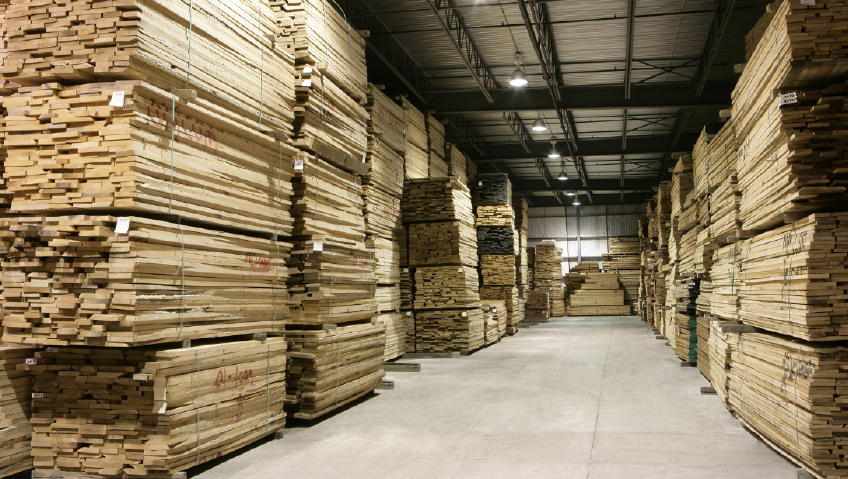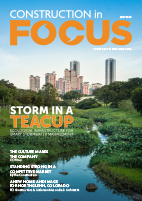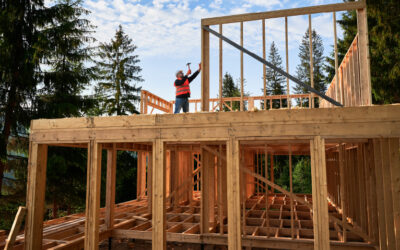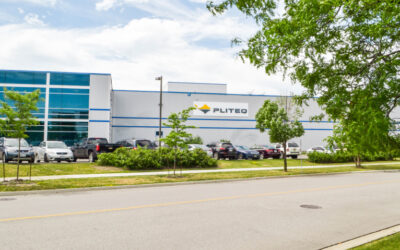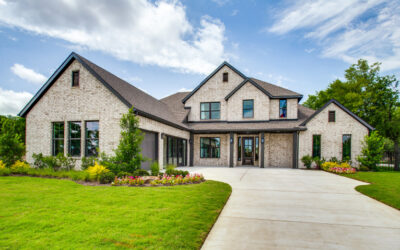Simon Boucher, a carpenter with a passion for woodworking, founded Menuiserox in 1979 to sell state-of-the-art hardwood components to the construction industry. By 1985 the humble startup had expanded well beyond its hometown of Beauceville, Quebec, to sell throughout the province.
The company quickly gained a reputation for quality and continued to grow until Menuiserox became a well-known name in the industry. Today, the company supplies a variety of stair components across Canada and the United States.
Mr. Boucher’s son, Guillaume, grew up in the business and inherited a passion for woodworking from his father. After holding a variety of positions throughout the company and attending Duschesnay Forestry School, Guillaume Boucher took over the business along with Jacquot Veilleux, who shares the Boucher commitment to quality wood products. Mr. Veilleux grew up surrounded by his family’s maple groves where he developed a deep appreciation for trees. He worked as a carpenter and logger before studying wood engineering at Laval University, landing an internship at Menuiserox, and working his way up through the company.
The new owners have managed to overcome the challenges that so often snag second-generation businesses. Slow and steady wins the race, and one key to success was that the team took plenty of time to make the transition. Another important factor was Simon Boucher’s ongoing cooperation and guidance as well as his confidence in the new leadership. “He gave us a lot of liberty in our decisions,” Veilleux says. “He had trust in us. He would let us make decisions and he coached us a lot in those [transition] years from 2011 to 2018… He took the time that was needed to make sure we were in control before leaving us alone with the responsibility.”
Quality is a defining factor that sets Menuiserox apart. The team buys timber directly from the forest and supervises the progression from log to ready-to-work wood in order to ensure top-notch material. They oversee the log’s journey to the sawmill and the operations there, and then dry the lumber in the company’s own kilns. “We are able to control the process,” says Veilleux.
This level of quality has earned the company many long-term customers. “We are very proud of our customers,” Veilleux says. “We have customers that have been with us for 25 years,” won over by the company’s dependability in addition to quality. “The quality is consistent and delivery lead times are stable,” Veilleux says. “Customers rely on us.” The team works hard to earn that trust. “When we promise a delivery date we do it.”
This reliable workforce ensures quality and consistency. “We have a fantastic team and we are very proud of what they do every day,” says Veilleux. “We have people that have been here for 25 years. They are very loyal.”
Customers also appreciate the company’s flexibility. “We make almost everything from small volumes to big volumes,” he explains. “We can make an order of 25 treads or 100 linear feet of handrail, and we can make 30,000 linear feet of rail as well.”
Lean management has also been key. The new owners implemented the streamlined production method in 2016 and have enjoyed positive results ever since. “That’s helped us a lot in the last few years for our costs to be more competitive,” Veilleux says. The company’s dedicated employees have played an important role in the new system. “One thing that we’re very proud of is, since we instilled lean management, we have a lot of feedback and participation from the workers,” Veilleux shares. “We have over two hundred improvements or opportunities, as we call them, coming from the work floor every month. These are small projects that make us more efficient. I call them grass roots; it comes from the workers on the floor, not only from the managers.”
The company began making engineered parts in 2014 and sees a great deal of potential in the new product line for the future. The team has already produced over 80,000 units and demand continues to grow. The engineered treads are made from Russian birch plywood with a layer of hardwood on top and a solid hardwood nose across the front. Used for both new construction and renovations, the versatile product is remarkably sturdy due to the engineering process. “This product is going to be more stable,” Veilleux says. It is also an environmentally friendly option. “We save hardwood; instead of taking a full board of, let’s say, one inch thick, we are going to take one fifth of that to make the same tread. And the Russian birch plywood is abundant in Russia, so that’s not a problem.”
Of course, the COVID-19 quarantine has created new challenges for the company and its employees. The company was shut down for three weeks, from the end of March until mid-April, and when the doors reopened, the team put a number of measures in place to protect employees. Every worker must wear a face shield and answer a questionnaire at the beginning of each shift to monitor for any possible symptoms. The team also reorganized the workspace so stations are a minimum of six feet apart. They sanitize doorknobs, microwave handles, light switches, and other high-touch surfaces regularly. Fortunately, these changes have been relatively easy to implement.
The real challenge has been making up for the time they lost while the company was closed. “We are having a hard time to reach the productivity we had in March before we were shut down,” Veilleux says. Orders kept rolling in, even when the production lines were down. Meanwhile, many competitors kept producing during that time, adding even more pressure. “[We have] so much demand that we have a hard time to keep up with the demand,” Veilleux says. “A lot of competitors that are in Ontario and other provinces and states were not closed for three weeks, so they managed to keep producing as opposed to us, who could not produce for those three weeks.” Veilleux predicts that the company will be completely caught up in a matter of months. “After that I think things will come back to normal.”
One challenge – industry-wide – that existed before the quarantine and is likely to continue is a lack of available workers. “The biggest challenge we have had in the last few years was to find the labour,” Veilleux says. “We have a few workers that come from abroad that we hired because we couldn’t find the labour necessary for the growth of the company and we actually had to limit the growth of the business.”
The team is optimistic about future growth despite these challenges, and they have clear strategies in mind for moving forward. “Our goal for the company is to increase our sales and to increase our productivity at the same rate. So let’s say we want to increase the sales by eight to ten percent each year, we also want to increase the productivity by eight to ten percent a year by improving the process, the methods, and also by investing in automation.” Lean management will continue to play a pivotal role throughout this process.
The plan is to double the size of the company in ten years. “So that’s about seven or eight percent growth every year,” Veilleux says. The growth plan would likely be even more aggressive if they could access the manpower. “We cannot grow at fifteen, twenty percent every year because we wouldn’t be able to find the labour to do so.”
Expanding geographically is also a critical component of the team’s plan. The current focus is developing sales along the east coast of the United States until Menuiserox has a presence all the way to Texas. Already active in ten states – New York, Massachusetts, Pennsylvania, Virginia, Georgia, Michigan, Maryland, North Carolina, Texas, and New Jersey – the company is well on its way and, after four decades of steady growth, it seems only a matter of time before the company meets its next benchmark.

